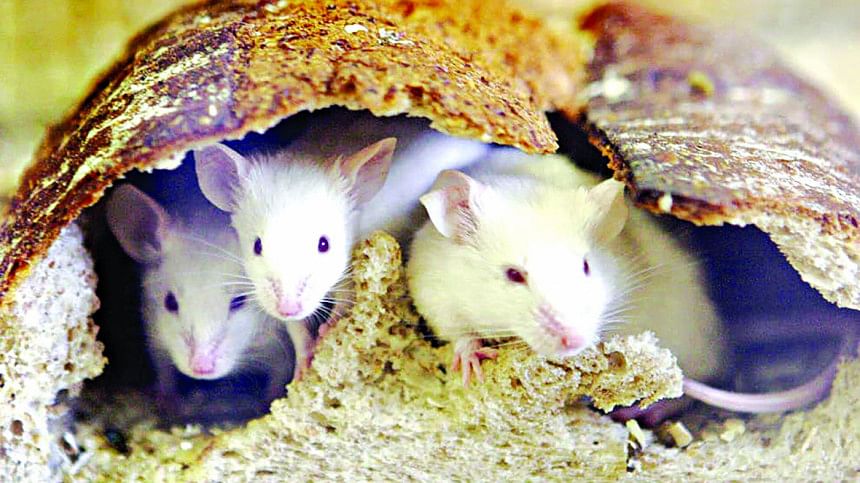Scientists reverse ageing in mice

Scientists have reversed signs of ageing in middle-aged and elderly mice by partially resetting the rodents' tissues to more youthful states, an advance they say may lead to better anti-ageing methods without side effects like brittle bones, weaker muscles or cancer.
As organisms age, studies have found that every cell in their bodies carries a molecular clock that records the passage of time.
Previous research has found that the cells isolated from older people or animals have different patterns of chemicals along their DNA – called epigenetic markers – compared to those seen in younger people or animals.
Scientists have also previously reported that a mixture of four molecules – Oct4, Sox2, Klf4 and cMyc – known as "Yamanaka factors" – could reset epigenetic marks in cells to their original patterns, and using this approach researchers say adult cells can be dialled back into undifferentiated stem cells.
In the current study, published on Monday in the journal Nature Ageing, scientists tested variations of the cellular rejuvenation approach in healthy animals as they aged.
In one group of mice, researchers from the Salk Institute in the US, added doses of the Yamanaka factors from the time they were 15 months old until 22 months – approximately equivalent to age 50 through 70 in humans.
They treated another group from 12 through 22 months, approximately age 35 to 70 in humans, and a third group for just one month at age 25 months, similar to age 80 in humans.
When the researchers looked at normal signs of ageing in the animals that had undergone the treatment, they found that they resembled younger mice in many ways.
In both the kidneys and skin, they say the epigenetic markers of treated animals more closely resembled patterns seen in younger animals.
When injured, the skin cells of treated animals had a greater ability to proliferate and were less likely to form permanent scars while older animals usually show less skin cell proliferation and more scarring.
The metabolic molecules in the blood of treated animals also did not show normal age-related changes, the study noted.
Researchers say there were no blood cell alterations or neurological changes in the mice that had received the Yamanaka factors compared to the mice in the control groups.
The team also did not find any cancers in any of the groups of animals.

 For all latest news, follow The Daily Star's Google News channel.
For all latest news, follow The Daily Star's Google News channel. 



Comments